Retro Replay Review
Gameplay
Oligopoly takes the familiar loop of rolling dice and buying properties from classic board games and layers on a rich turn-based strategy system that challenges your business acumen as much as your luck. Each round begins in the boardroom, where you can review your current holdings, cash reserves, and outstanding loans before you spin the wheel of chance. Once the die is cast, you’re whisked off to one of 52 countries, each home to a single company you may purchase—provided no rival player has beaten you to the deal.
(HEY YOU!! We hope you enjoy! We try not to run ads. So basically, this is a very expensive hobby running this site. Please consider joining us for updates, forums, and more. Network w/ us to make some cash or friends while retro gaming, and you can win some free retro games for posting. Okay, carry on 👍)
The depth of Oligopoly emerges in the myriad options available on every turn. Beyond simply acquiring new firms, you can invest in plant expansions to boost profits, seek financing from banks, or repay existing debt to improve your credit rating. Trading with other players adds a diplomatic dimension: you might sweeten deals with cash incentives, swap under-performing assets, or forge temporary alliances to corner a particular market. If the numbers ever look grim, you even have the option to sell off companies or resign, gracefully bowing out when the boardroom drama turns sour.
Vertical monopolies are the game’s centerpiece for strategic mastery. By controlling three complementary companies within the same industry—like copper mining, semiconductors, and computer manufacturing in electronics—you unlock exponential profit multipliers and gain leverage over shipping costs. Speaking of which, every quarter (every three turns) you must pay global shipping fees based on your fleet size, geographic spread, and industry focus. This global supply-chain mechanic injects realism and forces you to think several moves ahead: is that distant chemical plant worth the extra freight expense?
Random events punctuate the steady rhythm of buy-build-pay. A natural disaster might level a factory, a labor strike could freeze revenue flows, or a surprise U.S. government grant might inject fresh capital into your war chest. Even moments of levity appear—win big at a virtual casino or take a forced vacation, skipping a turn but perhaps regaining psychological momentum. These unpredictable twists ensure every session feels new, keeping tension high until the final dollar is counted or the last player yields.
Graphics
Visually, Oligopoly opts for a clean, functional aesthetic designed to keep your focus on strategic decisions rather than flashy animations. The world map is rendered in crisp vector graphics, with each country’s company logo clearly displayed in its national colors. Borders glow subtly when you hover over them, and a simple tooltip system provides all the financial data you need without cluttering the screen.
The user interface strikes a balance between modern minimalism and classic board-game charm. Menus slide in and out swiftly, and buttons animate with satisfying “click” sounds, creating tactile feedback even though you’re clicking with a mouse or controller. Transaction windows present investment opportunities and loan details in well-organized tabs, so you can easily compare interest rates or projected ROI before committing your funds.
Animated sequences are sparse but effective. Acquiring a new company triggers a short celebratory graphic showing your character raising a corporate flag, while shipping cost payments are visualized by animated cargo ships traversing a stylized globe. These touches don’t overstay their welcome and always serve to reinforce the game’s global economic theme.
Even the random events come with bespoke artwork: you’ll see storm clouds gathering over a factory when disaster strikes, or confetti raining down during a jackpot win. Though the graphics engine isn’t cutting-edge, its clarity and consistency enhance immersion and keep the pace brisk—no long load screens or technical distractions stand between you and your next strategic move.
Story
Oligopoly isn’t a narrative-driven experience in the traditional sense; there’s no central protagonist or branching dialogue trees. Instead, story emerges organically from your competitive dealings with up to five human or AI opponents. Every trade negotiation, hostile takeover, or last-minute loan repayment weaves its own tale of boardroom triumphs and defeats.
The overarching “story” is that of capitalism on a global scale: you build empires from scratch, navigate regional market quirks, and adapt to fluctuating world events. The 52-country board acts as a silent narrator, each space hinting at geopolitical realities—chemicals in Germany, textiles in India, electronics in South Korea—though it never lectures on real-world economics. If you lean into the theme, it feels like a lighthearted yet strategic simulation of corporate competition without heavy-handed socio-political commentary.
Characterization comes through in each opponent’s playstyle. Aggressive AI rivals may ruthlessly undercut your shipping routes, while more cautious players hoard cash and strike only when vertical-monopoly conditions are met. Human opponents often inject humor, bluffing during negotiations or making last-ditch gambits to stay in the game. These interactions are the closest thing to a crafted storyline—unpredictable, emergent, and fueled by player ingenuity.
Random events contribute to an episodic feel. One minute you’re orchestrating a continent-wide electronics supply chain, the next you’re scrambling to rebuild after a typhoon destroys your factories in Southeast Asia. It’s this blend of strategic planning and reactive problem-solving that gives Oligopoly its unique narrative flavor—and ensures each session tells a different tale.
Overall Experience
Oligopoly shines as a social strategy experience. Whether you’re squaring off with friends in hot-seat mode or challenging AI opponents of varying difficulty, the game consistently delivers tense, rewarding decision points. Sessions can stretch from 30 minutes to several hours depending on player count and negotiation style, making it flexible for quick pick-up games or longer weekend marathons.
Newcomers to turn-based strategy will appreciate the accessible tutorials and contextual tooltips, which demystify concepts like vertical monopolies and shipping cost calculations. Seasoned strategists, meanwhile, can dive deep into complex financial modeling—balancing leverage, reinvestment, and diplomacy to outmaneuver rivals. The AI opponents adapt to your tactics over time, ensuring that no two playthroughs feel identical.
Multiplayer mode is the real crown jewel: real-time chat and trade offers foster lively banter, and built-in pause functionality lets you think through major deals without feeling rushed. Online match-making is reliable, though finding a full six-player table can sometimes take a moment. Local pass-and-play remains a delightful option for casual gatherings or family game nights.
In the end, Oligopoly delivers a robust, engaging strategy package that captures the thrill of global business competition without overwhelming newcomers. Its blend of economic depth, emergent storytelling, and social interaction makes it a compelling choice for anyone seeking a modern spin on a board-game classic. Whether you’re plotting a vertical monopoly or navigating a series of unlucky events, Oligopoly keeps the stakes high and the gameplay endlessly replayable.
 Retro Replay Retro Replay gaming reviews, news, emulation, geek stuff and more!
Retro Replay Retro Replay gaming reviews, news, emulation, geek stuff and more!
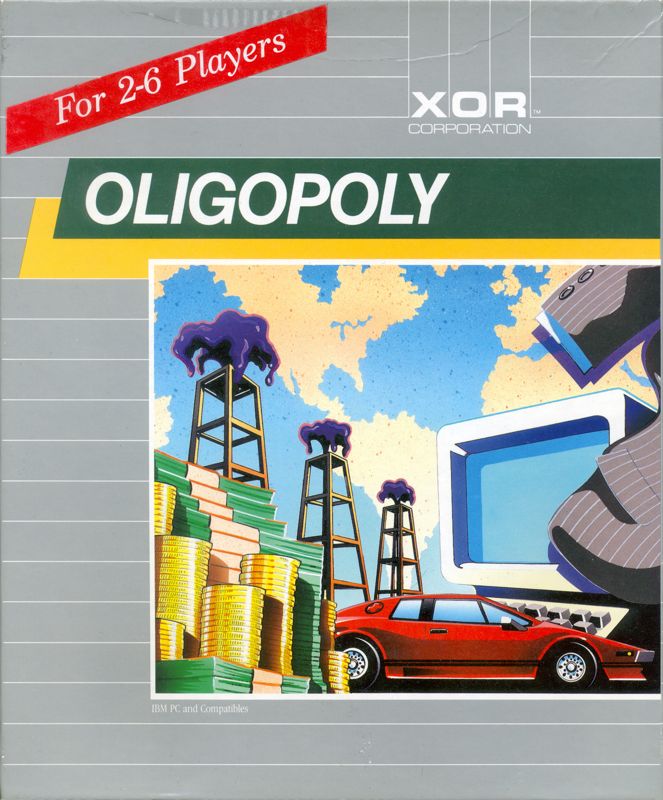
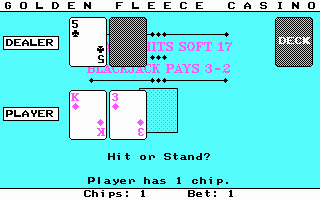
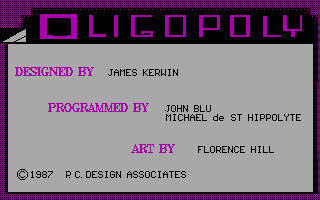
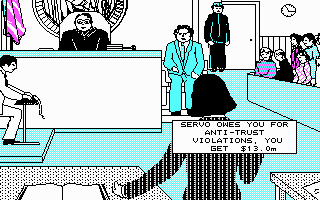

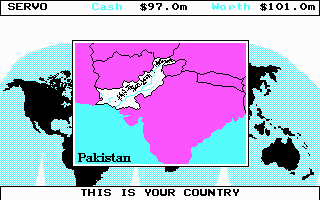



Reviews
There are no reviews yet.